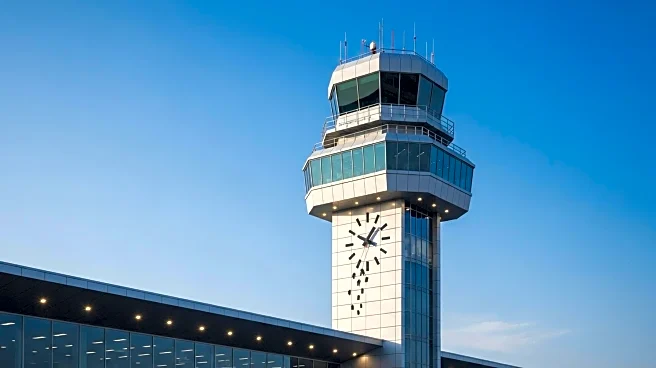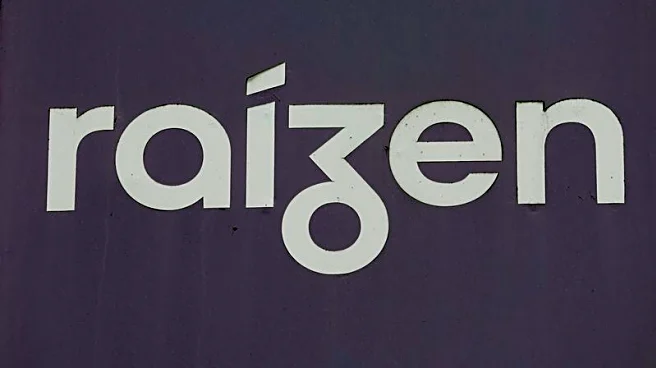What is the story about?
What's Happening?
Transportation Secretary Sean Duffy has highlighted the impact of the ongoing U.S. government shutdown on air traffic control staffing. The shutdown, which began on October 1, has led to furloughs for approximately 750,000 nonessential government workers. Air traffic controllers, deemed essential, are required to work without pay, resulting in increased stress and fatigue. Duffy noted a rise in sick calls among air traffic controllers, contributing to delays at major airports such as Boston, Chicago, Denver, and Newark. At Hollywood Burbank Airport, the control tower was left unmanned for six hours due to staffing shortages, causing significant flight delays. Duffy expressed concern that controllers might need to take second jobs to manage financial obligations during the shutdown.
Why It's Important?
The staffing shortages in air traffic control due to the government shutdown have significant implications for U.S. air travel safety and efficiency. Delays at major airports can disrupt travel plans for thousands of passengers, affecting airlines' operations and potentially leading to economic losses. The stress and fatigue experienced by air traffic controllers working without pay could compromise their ability to maintain safety standards, posing risks to the National Airspace System. The situation underscores the broader impact of political stalemates on essential services and the economy, highlighting the need for resolution to prevent further disruptions.
What's Next?
As the shutdown continues, the Federal Aviation Administration may need to implement measures to manage the flow of air traffic safely, potentially leading to more delays. Political leaders, including Senate Majority Leader Chuck Schumer and California Governor Gavin Newsom, have been criticized by Duffy for their roles in the shutdown. The National Air Traffic Controllers Association has urged its members to continue working despite the lack of pay, warning against actions that could negatively affect airspace capacity. The resolution of the shutdown will be crucial in restoring normal operations and ensuring the financial stability of air traffic controllers.
Beyond the Headlines
The ongoing situation raises ethical concerns about the treatment of essential workers during government shutdowns. The expectation for air traffic controllers to work without pay while managing high-stress responsibilities highlights the need for policies that protect workers' rights and ensure fair compensation. The shutdown also reflects broader political challenges in achieving bipartisan agreements, impacting public services and the economy. Long-term solutions may require legislative changes to prevent essential services from being disrupted during political impasses.

















